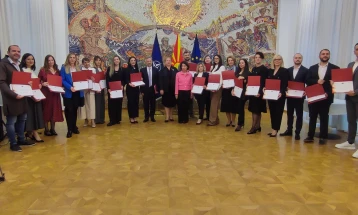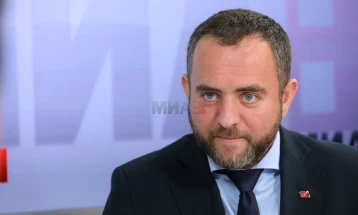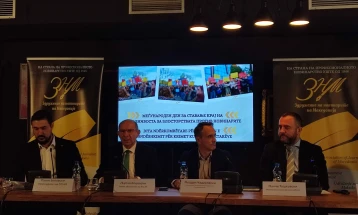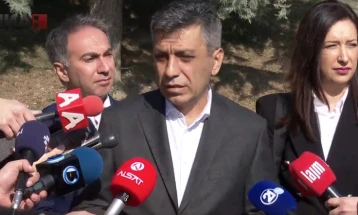US State Department's report on human rights practices in North Macedonia: Serious government corruption and violence against journalists
- Washington, 22 April 2024 (MIA) - Serious government corruption and serious restrictions on freedom of expression and media freedom, including violence and threats of violence against journalists, are highlighted in the US State Department's report on human rights practices in North Macedonia in 2023, Voice of America in Macedonian reports.
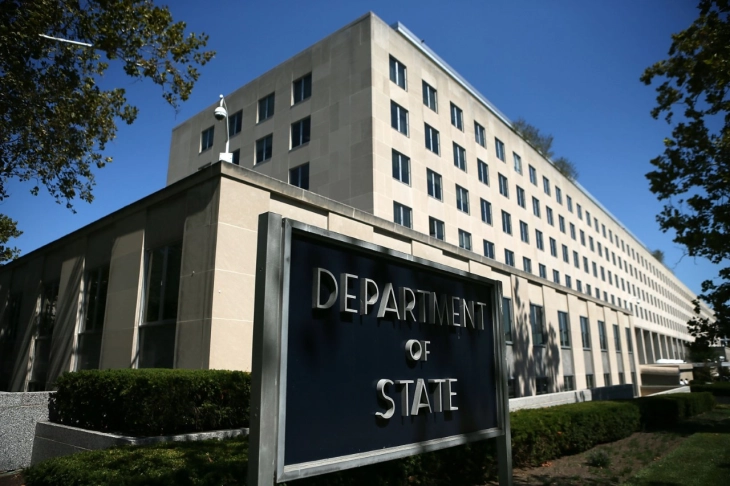
Washington, 22 April 2024 (MIA) - Serious government corruption and serious restrictions on freedom of expression and media freedom, including violence and threats of violence against journalists, are highlighted in the US State Department's report on human rights practices in North Macedonia in 2023, Voice of America in Macedonian reports.
The report says that the law provided criminal penalties for corruption by officials, but the government did not implement the law effectively.
“There were numerous reports of government corruption. In September the government passed amendments to the penal code, significantly reducing charges and sentences for corruption-related crimes. Nongovernmental organizations (NGOs) argued that as the country’s largest employer, the government’s dominant role in the economy created widespread opportunities for corruption,” says the report.
The State Commission for Prevention of Corruption (SCPC) reported corruption was generally getting worse.
The report notes that there were significant delays in trials involving serious corruption, with only a few concluded as of September, including those against former government officials. The Skopje PPO initiated an investigation into allegations State Oncology Clinic staff stole cancer medications and sold them on the black market. Citizens protested these allegations on numerous occasions, and police and prosecutors raided the clinic on September 1 to collect evidence.
The constitution provided for an independent judiciary, but the government did not always respect judicial independence and impartiality, reads the report.
“Credible reports of unsanctioned judicial misconduct, undue political and business pressure on judges, nepotism, clientelism, protracted justice, inadequate funding, resistance to using legally mandated technology, and short staffing, hampered court effectiveness and affected public confidence in the rule of law,” the US Department of State notes.
Polls showed strong public distrust of the judiciary, notes the report.
“Politically influenced promotions lacking merit or transparency occurred in the judiciary and prosecution service. In January the Judicial Council (JC) found two Skopje Appellate Court judges knowingly delayed rulings to push defendants past the statute of limitations. On April 26, the JC dismissed its president, a move critics claimed indicated political interference. Two members resigned from the JC in response, and several prominent civil society organizations (CSOs) called for the full resignation of the council,” reads the report.
According to media and CSOs, freedom of expression was undermined by justice system ineffectiveness, lack of transparency regarding media advertising by state institutions, inappropriate conduct on behalf of public officials in their interaction with journalists, pressure on journalists investigating corruption, disinformation, hate speech in online and social media, and self-censorship.
Independent media associations expressed apprehension concerning proposed changes to the Law on Audio and Audio-Visual Services, which could permit “high public interest” government campaigns to be advertised through commercial broadcasters. Critics argued this could exacerbate media corruption and editorial interference, reads the report.
The Media Trade Union reported instances of pressure and threats against its members for opposing these amendments.
“The law prohibited speech inciting national, religious, or ethnic hatred and provided penalties for violations. In addition to television and social media, these restrictions covered print and broadcast media, publication of books, and online newspapers and journals,” reads the report.
In regard to the protection of members of racial or ethnic groups from violence and discrimination, the report notes that Coalition Margini reported 24 cases of violations against Roma regarding access to health, social protection, access to goods and services, protection from gender-based violence, and inappropriate entry of data in personal documents.
The report notes that the minister of justice closed Bulgarian cultural clubs “Tsar Boris III” and “Ivan (Vanco) Mihajlov”, citing the 2022 law requiring organizations named after fascist supporters or collaborators to change their names.
The US Department of State documents the state of human rights in nearly 200 countries and territories around the world.
“The law provided for the right to freedom of association and the government generally respected it. Authorities in Bulgaria continued to deny registration of ethnic-Macedonian activist groups such as the United Macedonian Organization-Ilinden, Society of Oppressed Macedonians in Bulgaria-Victims of Communist Terror, Association for Protection of Basic Individual Human Rights 2023, and Macedonian Culture Club “Nikola Vaptsarov” despite numerous prior decisions by the European Court of Human Rights that the denials violated the groups’ freedom of association,” reads the report.
The report also notes that in February the Plovdiv District Court confirmed the Registration Agency’s decision denying registration of the United Macedonian Organization Ilinden-Plovdiv on the grounds that the group’s goals, including official recognition of a Macedonian ethnic minority, were aimed at dividing the nation and would create conditions for an ethnic conflict. In May the Plovdiv Appellate Court confirmed the lower court’s decision.
Photo: MIA archive

